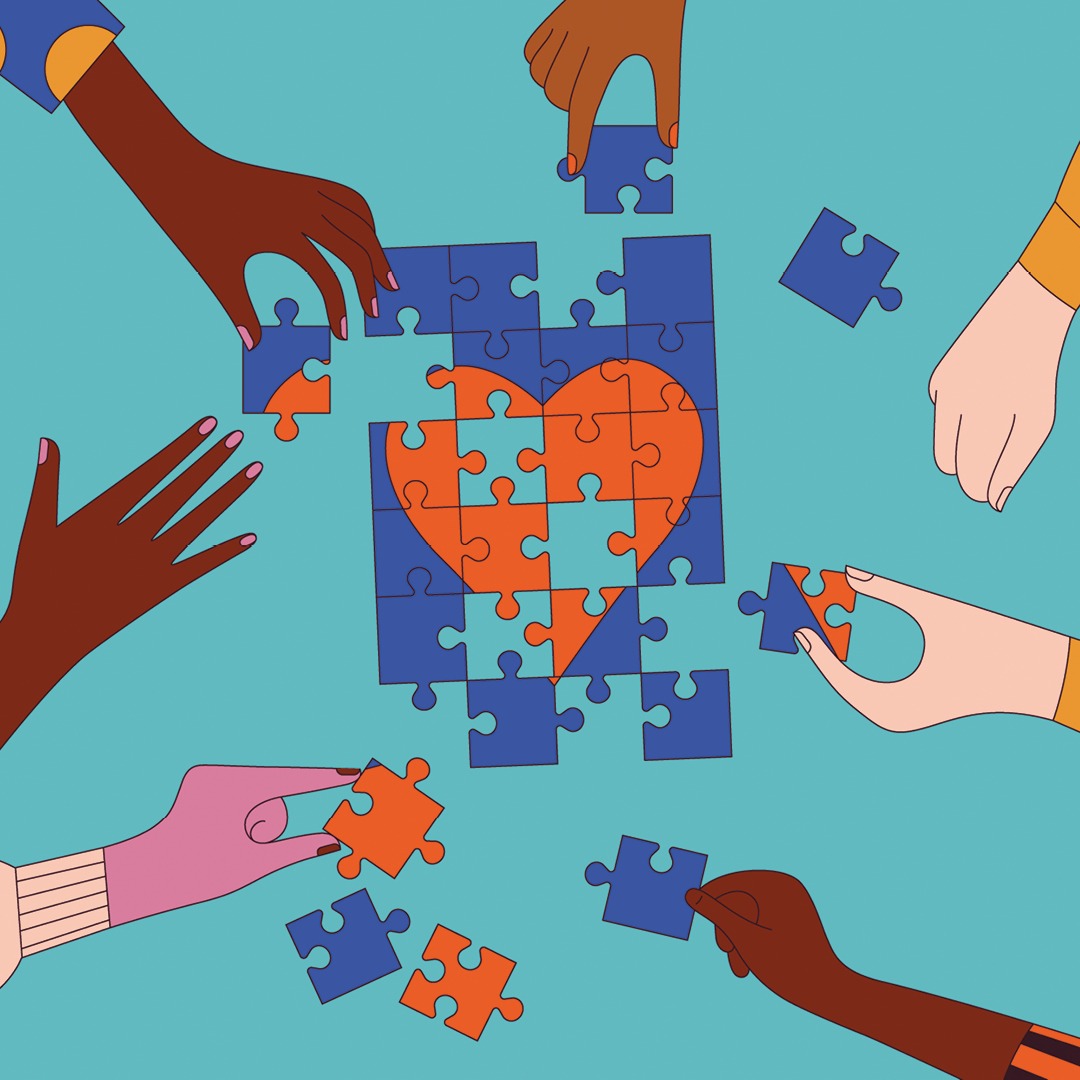If somebody told you to picture one of your friends, and then asked how you met this friend, you might be able to answer with one simple word: hobbies. Whether it’s via a neighbourhood netball group or an after-school crafting club, many of us make friends for life through our extracurricular activities. But are shared interests always necessary for forming friendships, or can a little difference go a long way?
Mutual pastimes
It can feel great to have someone in your life who likes the same things as you. Perhaps you have a friend who enjoys video games as much as you do, or understands exactly why you love going swimming whenever you can. When you meet likeminded people, there’s an immediate shared ground – you can skip the small talk and launch straight into discussion about your hobby, or even take part in the activity together there and then.
‘Shared hobbies can make conversations easier,’ agrees therapist and author Rebecca Anderson, who’s based in Hemel Hempstead. ‘They give us instant common ground and something to talk about. Plus, for anyone who feels socially anxious, having a shared topic or a ‘way in’ can take away some of that worry about navigating those dreaded awkward silences, and help to build confidence in social situations.’
Human connection
Over time, participating in your shared hobby can be what solidifies your friendship. Maybe you’re playing hockey together each week: learning new skills, high-fiving good teamwork and riding the highs and lows of playing in matches. Or perhaps you’re in a book club where you each choose your favourite plotlines and characters or laugh together as you flick through a chapter. Whatever your passion, finding people who feel just as strongly about it as you do can be a truly bonding experience.
Rebecca believes that the reason hobby sharing feels so good is because of our age-old human need to be seen and understood. ‘It can help you feel a sense of belonging, and connect you with a community,’ she says. ‘This is important for people of all ages, but especially for teenagers, who are trying to figure out who they are and building the foundations of healthy self-esteem. Although we all vary in how much we enjoy social time versus solitude, feeling connected to others is absolutely vital for our mental and emotional wellbeing, no matter where we fall on that spectrum.’
Branching out
One particularly special part of making friends through mutual interests is that it can introduce you to people you might never have met otherwise. ‘Take, for example, a club or sports team,’ says Rebecca. ‘You’ll often find a mix of ages, backgrounds and cultures coming together over a shared love of the activity. You might end up spending time with different people you wouldn’t normally cross paths with in everyday life.’
And – even better – these paths crossing can help you challenge beliefs you might be holding onto without even realising it. ‘Old assumptions or prejudices about certain groups often fade away when you get to know the person behind the labels,’ Rebecca adds. ‘Backgrounds matter far less when you connect with others on a deeper level. Who you are ‘on paper’ doesn’t matter nearly as much as the genuine connections you make.’
Different strokes
If you’re into football and your indoorsy friend can think of nothing worse, that doesn’t automatically mean the friendship is doomed. Why not spend some time explaining why you enjoy your respective hobbies, so you can understand each other a little better?
There’s also the option to try out each other’s hobbies as a one-off, which can be scary, but might also lead to something fun. It’s not about giving up your own interests – instead, it’s about experimenting with someone else’s, knowing they’re prepared to do the same. ‘Friends with different interests can open your eyes to new experiences and opportunities you might never have tried on your own,’ explains Rebecca. ‘It’s a great way to step out of your comfort zone and discover new things you might end up loving – and if you don’t, it’s all good experience!’
Shared values
It’s natural to gravitate towards potential friends who are most like you. Everyone wants to feel safe and valued for who they are. The trouble is, when you connect only with people who seem similar or think the same as you, you risk missing out on perspectives that can help you to grow. ‘As with most things in life, balance is key,’ says Rebecca.
The most important part of a friendship? Finding someone who has the same values as you – whether that’s a friend who’s campaigning to raise awareness about climate change, a buddy who understands the importance of telling the truth or a mate who agrees that kindness is underrated. ‘Just because two people don’t share the same hobbies doesn’t mean they don’t share similar values or ways of seeing the world,’ Rebecca says. ‘Sometimes, it’s these differences that make friendships richer and more surprising, so don’t write someone off just because they like something you don’t (unless, of course, it’s something you feel very strongly about).’
When it comes to making friends, it’s great to seek out fellow fans of your hobbies – but it’s also exciting to remember that shared values and deep connections can come from anywhere, and from anyone.
Sophie Jo is the author of Red Flags (Scholastic), in which the main character Poppy realises that having things in common might not be the only way to form deep, long-term relationships.


